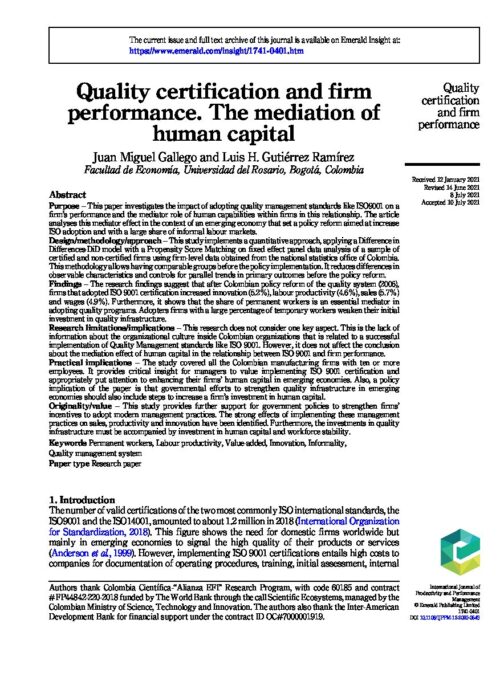This paper investigates the impact of adopting quality management standards like ISO9001 on a firm’s performance and the mediator role of human capabilities within firms in this relationship. The article analyses this mediator effect in the context of an emerging economy that set a policy reform aimed at increase ISO adoption and with a large share of informal labour markets. This study implements a quantitative approach, applying a Difference in Differences-DiD model with a Propensity Score Matching on fixed effect panel data analysis of a sample of certified and non-certified firms using firm-level data obtained from the national statistics office of Colombia. This methodology allows having comparable groups before the policy implementation. It reduces differences in observable characteristics and controls for parallel trends in primary outcomes before the policy reform.
Autores:
- Juan Miguel Gallego
- Luis H. Gutierrez
Palabras clave:
- Informality
- Innovation
- Labour productivity
- Permanent workers
- Quality Management system
- Value-added
Categorías:
- Proyecto 2
- Publicación
